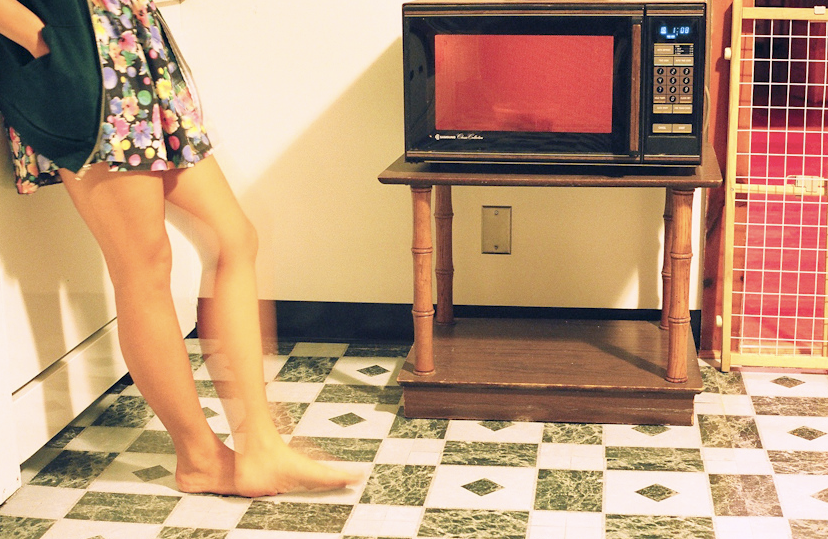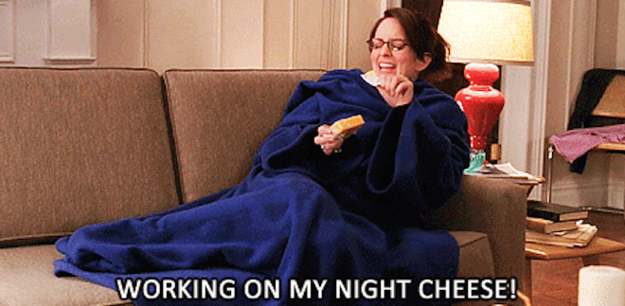What Happens to Your Body When You Eat Right Before Bed

By:
Many people like to indulge in tasty rewards and hearty dinners after long days at work, but research shows that the immediate pleasures of late night snacking can be harmful to your health.
Eating late and weight gain.
Dr. Kelly Allison, director of the Center for Weight and Eating Disorders at the University of Pennsylvania, told The Washington Post last year that research often reveals that eating outside one's normal sleep/wake cycle can cause the body to store calories as fat rather than burn it as energy. This can result in weight gain and a rise in one's blood sugar levels, she said.
"The studies suggest that eating out of our normal rhythm, like late at night, may prompt weight gain," Allison told the publication.
 Flickr/Danielle deLeon - flickr.com
Flickr/Danielle deLeon - flickr.com
A 2013 study in the International Journal of Obesity found that timing of food can impact weight loss effectiveness. Looking at more than 420 overweight and obese people participating in a 20-week weight loss regimen, the study authors found that people who ate their biggest meal of the day after 3 p.m. lost less weight than the people who consumed the majority of their calories prior to 3 p.m.
People who ate later were also more likely to binge eat than people who didn't eat after dinner.
"Late lunch eaters lost less weight and displayed a slower weight-loss rate during the 20 weeks of treatment than early eaters," the study authors wrote. "Surprisingly, energy intake, dietary composition, estimated energy expenditure, appetite hormones and sleep duration was similar between both groups. Nevertheless, late eaters were more evening types, had less energetic breakfasts and skipped breakfast more frequently than early eaters."
The types of food people tend to eat late at night.
Allison told The Washington Post that more research is necessary to determine whether the types of food people gravitate towards late at night are as significant to weight gain as the time they eat them. She pointed out, however, that people tend to go for high calorie foods after long days. Dr. Caroline J. Cederquist, a board-certified bariatric physician who specializes in nutrition and metabolism, has noticed the latter to be true.
"At midnight, people will rarely make chicken and salad," Dr. Cederquist told U.S. News & World Report in 2015. "They will eat ice cream or chips, the high-fat or high-sugar foods that our bodies store so effectively as fat.”
Where acid reflux issues come into play.
A 2005 study conducted by the American Journal of Gastroenterology found a connection between people who ate within three hours of going to sleep and developing acid reflux symptoms. Researchers said that it takes around three to four hours for food to pass through the stomach and that eating three hours before bed can create heartburn.
 BuzzFeed - buzzfeed.com
BuzzFeed - buzzfeed.com
Dr. Jamie Koufman, who specializes in acid reflux, wrote in a New York Times piece in 2014 that she has observed a pattern of acid reflux among her patients who report eating late at night. She has found that many patients eat later and later these days due to long work days and nighttime activities such as exercise and shopping.
"Typical was the restaurateur who came to see me with symptoms of postnasal drip, sinus disease, hoarseness, heartburn and a chronic cough," Dr. Koufman wrote, adding that this patient always ate dinner after leaving work at 11 p.m. "My patient’s reflux was a lifestyle problem. I told him he had to eat dinner before 7 p.m., and not eat at all after work. Within six weeks, his reflux was gone."
Dr. Koufman noted that many people tend to eat their heaviest meal during dinner before relaxing in front of the TV. Laying down on a couch or bed, however, can increase one's risk of acid reflux, as sitting upright enables gravity to move one's food down in the digestive system.
"To stop the remarkable increase in reflux disease, we have to stop eating by 8 p.m., or whatever time falls at least three hours before bed," she wrote.
